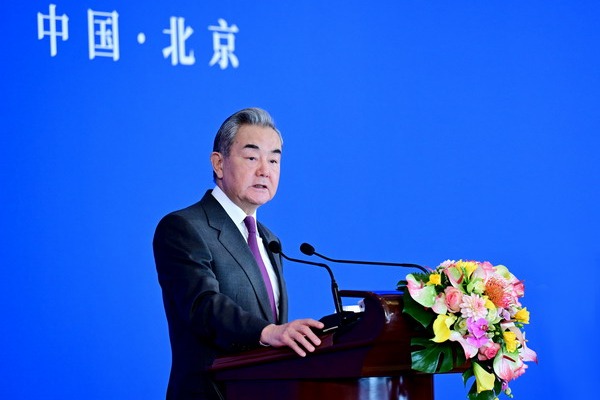Shared history of China and US during World War II


Viewed from the distance of 80 years, the end of World War II seems incredibly long ago. For many of the American college students I teach, it doesn't exist at all.
Perhaps this is a result of the way "history" is often taught. It is shared as a series of dates and events and told with an orderliness and inevitability that belies the drama of what happened.
To make the past understandable, stories are often simplified and streamlined. They also minimize the contributions made by ordinary men and women who did extraordinary things.
Several years ago, I produced and directed a documentary called Unsettled History: America, China and the Doolittle Tokyo Raid.
It is a story of heroes. American heroes, who took off to bomb military targets in Japan knowing they had enough fuel to get to Tokyo but not much farther. And Chinese heroes, who put their own lives in danger helping American airmen who literally "fell from the sky" in Japanese-occupied East China.
An unexpected tailwind carried the Americans to safety, but no one in China knew they were coming.
They landed in a place where they didn't know the language, didn't know where they were, and didn't know how to escape pursuing Japanese troops who wanted to capture, beat and torture them.
Most of the fliers who arrived in China were saved by the heroic actions of ordinary Chinese people who helped them solely because they were Americans coming to China to aid its fight against Japanese aggression.
It is one of countless examples of the sacrifices that the Chinese people made as they struggled to repel the Japanese invasion, which began more than four years before Pearl Harbor.
In looking at interviews with now elderly Chinese men and women, I was touched not just by what they said, but how they said it. They recounted their family stories with dignity and pride.
Their families had acted in the best tradition of Chinese hospitality and compassion. They had no idea who these strangers were. Yet they were ready to treat them like "friends from afar".
The people of East China would pay a high price for their hospitality.
Imperial Japanese Army troops would slaughter countless men, women and children. They would go so far as to use biological warfare, lacing food with deadly pathogens, then leaving it in places where hungry Chinese civilians would find it.
More recently, this year, I created a documentary called Valor and Memory.
The year before, while visiting China, I was surprised by the media coverage given to two elderly American veterans.
Having been members of the legendary Flying Tigers, they returned to China for one last look at the places where they had served.
Wherever they went, they were greeted as heroes. Which was understandable, given that the Flying Tigers initially fought to defend China at a time when Allied victories were few and far between in Asia.
What also struck me was how these two American veterans were famous in China, yet virtually unknown back home.
In researching their story, the story of the Flying Tigers, I stumbled upon the story of what might be called the "Chinese Tigers". These were Chinese pilots who came to America to learn combat techniques, and then returned to defend their homeland.
There were also the "Chinese American Tigers". Young men, some immigrants, others native born, who grew up in the so-called "Chinatown" neighborhoods of American cities like New York, San Francisco, Los Angeles and Honolulu.
They either were drafted or enlisted in the US Army Air Forces and were assigned to a special Chinese American unit.
As one veteran recalled, "We called them FOBs and they called us ABCs. Those who immigrated were 'fresh off the boat', and we were 'American born Chinese', but we got along."
First, they were taught essential technical skills, like aircraft engine maintenance and radio repair, then sent to China to help keep the Flying Tigers flying. They were sent as much for their cultural and linguistic skills as their technical abilities.
I never heard the story of the Chinese American Tigers when I was growing up.
In fact, I never heard about them as an adult either. This points to the fact that exploring China's history can lead to a better understanding of American history.
Traveling in contemporary China, it is hard to imagine the losses the country suffered during what is called "The War of Resistance". The Japanese military caused utter destruction virtually everywhere it went. Deaths numbered in the millions. It would take decades to rebuild China, and years more to modernize.
While America escaped physical devastation, it too suffered the loss of many brave men and women. It is why teaching new generations about the anniversary of the end of World War II remains so important.
The author is winner of three Emmy Awards who has made many documentaries about China and China-US relations.
The views do not necessarily reflect those of China Daily.

































